Colin Dexter, The Jewel that was Ours
£40.00
Colin Dexter is the Oxford don of classic crime. Wonderfully entertaining his Morse and Lewis characters are national treasures. A group of American tourist stay at the Randolph Hotel and attend a lecture; thus begins the mystery of the Wolvercote Tongue, or to give the title, “The Jewel that was Ours”.
Out of Stock
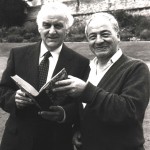
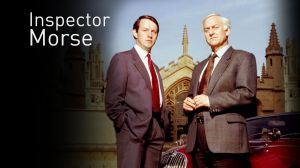 Colin Dexter was discovered by the collecting fraternity a few years after the long running Morse television series began in 1987. His first two books, nice fine first editions, were rarely priced at more than £60. The main reason for this was that detective fiction was a specialism and dealers of rarer collectibles stocked only literary fiction, unless of course, their was a demand. After the initial burst energy of a book a year for three years, the pace slackened to a book every other year or every third year. Dexter wrote for fun not for profit. Following the acclaimed series with John Thaw the author of the books was sought out for speaking engagements. It is said that he attended Buckingham Palace to read the Morse books to no less than Her Majesty. He was sought out by a pop music agent to give a presentation on Morse and his writing to a packed theatre. These feats compare in magnitude to the large literary figures of yesteryear such a Oscar Wilde.
Colin Dexter was discovered by the collecting fraternity a few years after the long running Morse television series began in 1987. His first two books, nice fine first editions, were rarely priced at more than £60. The main reason for this was that detective fiction was a specialism and dealers of rarer collectibles stocked only literary fiction, unless of course, their was a demand. After the initial burst energy of a book a year for three years, the pace slackened to a book every other year or every third year. Dexter wrote for fun not for profit. Following the acclaimed series with John Thaw the author of the books was sought out for speaking engagements. It is said that he attended Buckingham Palace to read the Morse books to no less than Her Majesty. He was sought out by a pop music agent to give a presentation on Morse and his writing to a packed theatre. These feats compare in magnitude to the large literary figures of yesteryear such a Oscar Wilde.
The Jewel That Was Ours (1991) is regarded by many as one of the best Morse stories. It began as as an outline that Dexter had written for the television screenplay and has the hallmarks of a classic detective story. An elderly female tourist from America is found dead in her room at the Randolph Hotel in Oxford, and a valuable jewel that had been in her possession is found to be missing. The jewel was to have been turned over to Oxford’s Ashmolean Museum. Although it looks as if the woman’s death was due to natural causes, the whereabouts of the jewel remains a mystery. The dead woman was an American tourist and the investigation leads to the tour group. When a museum curator turns up murdered, Morse and Lewis set about to sift through seemingly unrelated clues. The inspector must keep on his toes in order to sort out a number of scholarly suspects who are possible culprits.
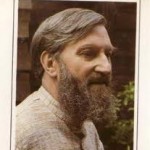 The author of the Appreciation and the president of the Detection Club, H R F Keating is in his element in perusing the Morse novels, from the Oxford setting, the people that Morse meets, to the construction of the puzzles. He delights in commenting on characters in this novel. It was published as a signed limited edition of 150 copies and 20 specially bound presentation copies. The leather spine was jaguar red.
The author of the Appreciation and the president of the Detection Club, H R F Keating is in his element in perusing the Morse novels, from the Oxford setting, the people that Morse meets, to the construction of the puzzles. He delights in commenting on characters in this novel. It was published as a signed limited edition of 150 copies and 20 specially bound presentation copies. The leather spine was jaguar red.

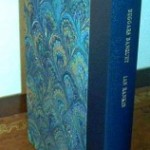 Ian Rankin, … Another Man’s Grave
Ian Rankin, … Another Man’s Grave
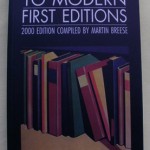 Breese (edited): Breese’s Guide to Modern First Editions (2000 edition)
Breese (edited): Breese’s Guide to Modern First Editions (2000 edition)

Rating by H R F Keating on May 17, 2012 :
Extract from the Appreciation by H R F Keating
Virtues a-pole in The Jewel That is Ours. Which to put first? Oxford perhaps. One of the great advantages Colin Dexter has as a writer is to have lived and worked in that out-of-the-ordinary city, a place both more beautiful than almost anywhere else and equally as ugly, with its lurking industry, its hugger-mugger crowds, its strangulated traffic, as any bloated old urban conglomeration anywhere. The critic, T J Binyon, in his study of the detective in fiction, Murder Will Out, has suggested that part of the success of our old friend Inspector Morse is due to his working not in some vague area, region or county but specifically in Oxford, a city he labels ‘numinous’. But he acknowledges that the city in which Morse carries out his investigations is as much a working place as somewhere appealing to those higher emotions. Indeed, Colin Dexter scores with both barrels here. Part of our pleasure is in his loving descriptions of the numinous, but not always most obvious, Oxford; touches like ‘note on each side of the road the cheerful, orange-brick houses, built in the last two decades of the nineteenth century’. And another part derives from Morse’s encounters with all sorts of common humanity such as may be found in any city, town or village, people like the telephone operator at the Randolph Hotel here who plays a small but vital part in the intrigue. Which brings us to the next virtue: the intrigue, with its many, many small but vital parts, the meshing lines of the crossword puzzle. Colin Dexter, notoriously, is a crossword compiler of The Oxford Times – Is he the ‘Ichabod’ Morse tests his wits against at a complicated moment here? – as well as a former national champion in the Ximenes and Azed competitions. So he constructs his books, to our delight and fury, much as crosswords, full of the double deceits of the toughest of them where you know you are being obfuscated but just cannot see how till that moment of illumination. If it comes”.
Rating by Kirkus Reviews on May 17, 2012 :
“For Dexter, a decidedly conventional outing, this one involving an American tour group and their Oxford guides and Inspector Morse’s investigation into who among them pilfered the Wolvercote Jewel, a Saxon buckle that Mrs. Laura Stratton was planning on presenting to the Ashmolean Museum. Laura dies in her hotel tub; the philandering tour-lecturer, Dr. Thomas Kemp, is found murdered; and Morse and sidekick Lewis are kept busy checking alibis, train schedules, romantic entanglements, and past tragedies. Discarding several pet theories that prove to be incontrovertibly flawed, Morse eventually–in an old-fashioned gathering-of-the-suspects confrontation scene–nitpicks his way to a solution, then retires to the King’s Arms for a pint of Flowers Bitter. Based partly on a storyline that Dexter wrote for the PBS series, this effort succeeds best in the small details–e.g., the use of a hearing aid as a clue–while being somewhat slapdash and sketchy in its character analysis and dialogue. Less impressive than the eight previous Morse stories, and far less adroit than Dexter’s handling of The Wench is Dead“. Kirkus Reviews